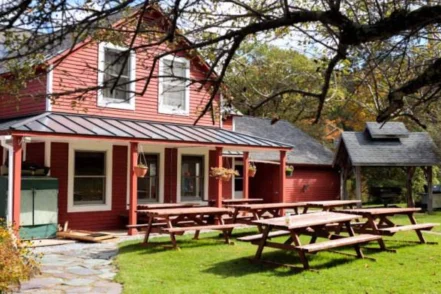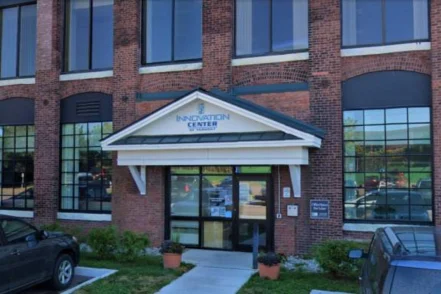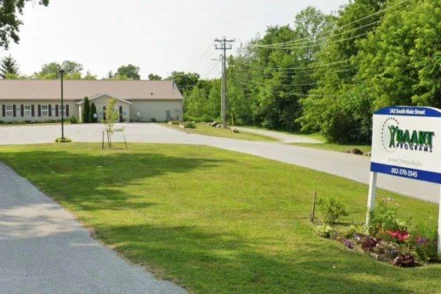About Averte
At Averte, we offer a variety of services to meet the needs of our clients. We offer dual diagnosis, young adult rehab, adult program, elderly rehab, outpatient rehab, and inpatient rehab. We also offer cognitive behavioral therapy, dialectical behavior therapy, experiential therapy, group therapy, and individual therapy. We are committed to providing the highest quality care to our clients and their families.
Addiction Treatment Programs
Dual Diagnosis
People with a dual diagnosis may be using substances to self-medicate. A high-quality rehab in Vermont can address both issues and help you reach recovery. A dual diagnosis program uses evidence-based approaches to help you overcome both your mental health concerns and substance use. This may include mental health medication, counseling, and more.
Young Adult Rehab
When people join a young adult rehab in Vermont, they learn key life skills while receiving treatment. A young adult program gives you the skills you need to overcome addiction and address the unique challenges of transitioning from the teen years to adulthood.
Adult Program
Adult programs in Vermont address a wide range of substance use issues while also helping clients with concerns such as raising children or building a career. An adult program gives you the skills you need to overcome addiction and address the unique challenges of managing your work, relating to your family, raising children, and balancing a variety of other responsibilities
Senior Rehab
For those who are older, a senior rehab in Vermont can give you the understanding and safety you need to break free from addiction. These programs offer personalized treatment that incorporates your physical, mental, and emotional needs. You’ll find the compassionate care you need to overcome addiction.
Insurance Coverage
Private insurance
If you have private insurance in Vermont, you can use your coverage to help pay for rehab treatment. Contact your insurer to find out coverage details and to learn what out-of-pocket costs to expect, such as deductibles and copays.
Self-pay options
In Vermont, one way to pay for rehab is to use self-pay, also known as private pay. You can use a medical loan, write a check, or electronically send money to the center you prefer. Payment arrangements may vary depending on the type of treatment.
Financial aid
For those who qualify, using financial aid programs to pay for treatment in Vermont can make rehab more accessible. Financial aid directly from the treatment center is one option, or you might be able to find grants or scholarships from community groups or local non-profits.
Levels of Care
- 1
Inpatient Rehab
Inpatient treatment in Vermont is led by professionals who help you build new habits and skills to live a substance-free life. Some of the elements of inpatient treatment include individual and group counseling, skill-building, relapse prevention, and help with essentials like employment and housing.
- 2
Outpatient Rehab
If you’ve recently finished a residential treatment program, participating in outpatient treatment in Vermont can help you reinforce and practice your new habits. Outpatient treatment sessions generally last 60 to 90 minutes and may include discussing a specific issue, sharing wins and challenges, education about specific topics, or developing life skills.
Therapies
Cognitive Behavior Therapy
Cognitive behavioral therapy in Vermont involves being aware of how your thoughts are connected to your feelings and behavior. During treatment, you’ll examine common thought disortions, identify learned negative behaviors, and learn the skills necessary to consciously choose a different reaction to each situation.
Dialectical Behavior Therapy
Dialectical behavioral therapy in Vermont involves embracing your strengths and building confidence in your ability to make positive changes. During treatment, you’ll unlearn unwanted thoughts and behaviors, practice and reinforce positive coping strategies, and empower yourself to create the life you want.
Experiential Therapy
When you’re struggling with addiction in Vermont, nontraditional approaches can help you heal. Experiential therapy, which uses hands-on activities to work through emotions, is one example. During experiential therapy, you’ll work through activities that will help you work through past experiences and emotions. Afterward, you’ll have the tools you need to address problems and manage triggers in a healthy way.
Group Therapy
It’s easy to feel isolated when you battle addiction, but group therapy in Vermont can show you you’re not alone. Group therapy sessions generally last 60 to 90 minutes and may include discussing a specific issue, sharing wins and challenges, education about specific topics, or developing life skills.
Individual Therapy
Individual therapy in Vermont can provide professional support and accountability as you work through substance use treatment. Individual therapy is a normal part of evidence-based treatment programs and may be a part of inpatient treatment, outpatient care, or both. Topics include processing past events that may have contributed to substance use, learning new life skills, and relapse prevention strategies.
Accreditations
Location
Contact Averte
Top Drug Rehab Centers in Vermont
-
 Vermont
VermontValley Vista Vergennes
1 Alden Place Vergennes, Vermont 05491
-
 Vermont
VermontSpring Lake Ranch
1169 Spring Lake Road Cuttingsville, Vermont 05738
-
 Vermont
VermontBrattleboro Comprehensive Treatment Center
16 Town Crier Drive Brattleboro, Vermont 05301
-
 Vermont
VermontWhite River Junction VA Medical Center Burlington Lakeside CBOC
128 Lakeside Avenue, Suite 260 Burlington, Vermont 05401
-
 Vermont
VermontCentral Vermont Substance Abuse Services
100 Hospitality Drive Barre, Vermont 05641
-
 Vermont
VermontCenterpoint Adolescent Treatment
1025 Airport Drive South Burlington, Vermont 05403
-
 Vermont
VermontBAART Programs Berlin
617 Comstock Road, Suite 5 Barre, Vermont 05602
-
 Vermont
VermontBAART Programs St Albans
242 S. Main Street Saint Albans, Vermont 05478
